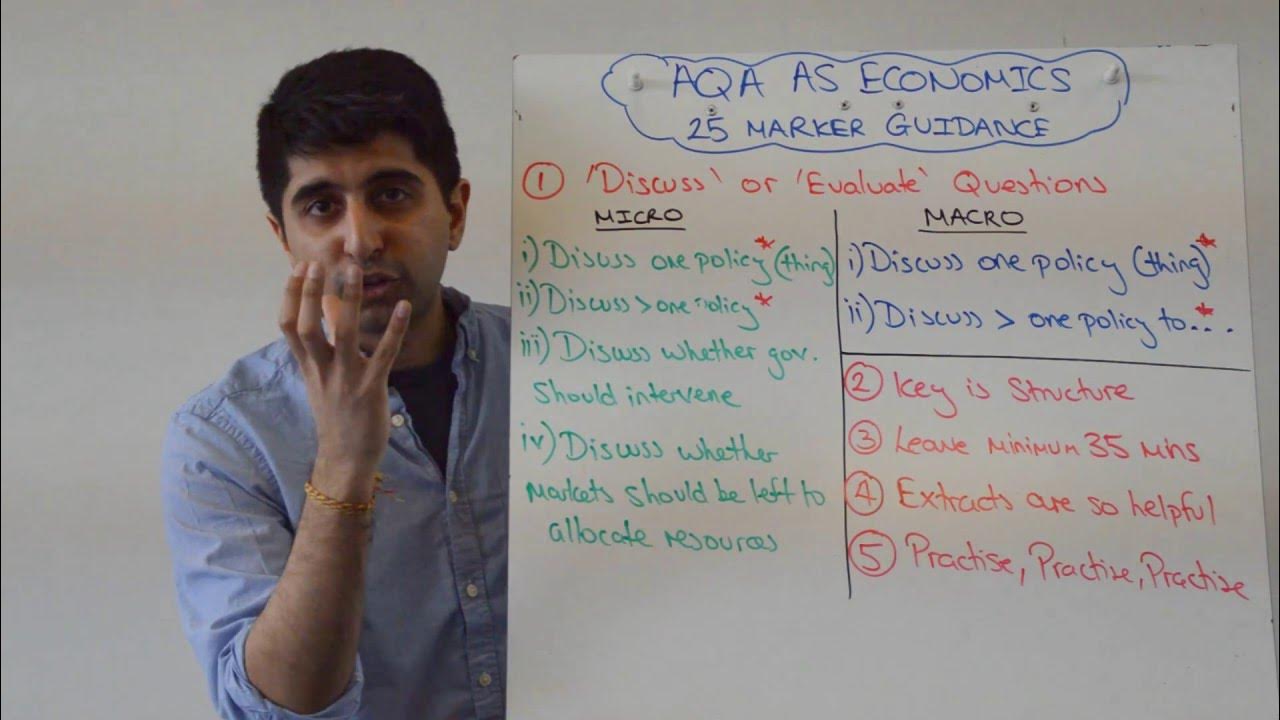Prepare for IGCSE exam | Biology Paper 6 | How to write a conclusion
Summary
TLDRIn this session of Show Academy, the focus is on mastering one-mark questions, with an emphasis on crafting perfect conclusions. The key takeaway is linking the independent variable to the dependent variable for precise, Cambridge-friendly conclusions. Examples are provided to demonstrate how to avoid common pitfalls and effectively write conclusions for different scenarios. The video offers strategies like using comparison format when comparing different variables or treatments, and highlighting trends with power words like 'increases,' 'decreases,' 'more,' and 'less.' This method ensures accurate conclusions that score high marks with clarity and logic.
Takeaways
- 😀 Understand that even one-mark questions can be crucial for developing strategic thinking in exams.
- 😀 The core idea behind this session is to build a rationale for answering all types of questions, not just one-mark ones.
- 😀 The goal is to train students to think like scientists and act with strategy.
- 😀 Always link the independent variable to the dependent variable in your conclusion to secure the mark.
- 😀 Cambridge sometimes allows linking the independent variable to the concept, but only when the dependent variable is clearly quantified (e.g., number of bubbles per minute, volume of gas per second).
- 😀 For example, both 'Increasing light intensity increases the number of bubbles formed' and 'Increasing light intensity increases the rate of photosynthesis' are acceptable conclusions, as both link the independent variable to the dependent variable.
- 😀 Be careful not to make assumptions about concepts that aren't clearly quantified, such as saying 'vitamin C diffuses faster at higher temperature' without time or rate data.
- 😀 Always link the independent variable to the measured dependent variable to avoid mistakes in conclusions.
- 😀 Use the comparison format when your experiment involves comparing different species, tissues, or treatments.
- 😀 If your data shows a trend, use the trend format by describing both the direction and details of the changes (e.g., 'As temperature increases, more CO2 is produced').
- 😀 Use clear and precise keywords like 'increases,' 'decreases,' 'faster,' 'greater,' etc., to make your conclusions more Cambridge-friendly and ensure you score the mark.
Q & A
Why is the session focusing on one-mark questions?
-The session focuses on one-mark questions because the goal is not just to score that single mark, but to develop a pattern of thinking and a rationale for answering any type of question, fostering a strategic and scientific approach to answering questions.
What is the main goal behind the session, according to the speaker?
-The main goal is to train students to think like scientists and answer questions strategically, building skills to answer effectively across various types of questions.
What is the 'golden rule' for writing conclusions?
-The golden rule is to always link the independent variable to the dependent variable in your conclusion. This is the safest and most effective approach to scoring marks in Cambridge exams.
When is it acceptable to link the independent variable to the concept in a conclusion?
-It is acceptable to link the independent variable to the concept when the dependent variable is clearly quantified over time, such as the number of bubbles per minute or the volume of gas per second.
What are some examples where linking the independent variable to the concept is acceptable?
-Examples include linking the independent variable (light intensity) to the concept (rate of photosynthesis) or linking light intensity to the number of bubbles per minute, both of which are valid conclusions in certain contexts.
Why should conclusions like 'increasing light intensity increases the rate of photosynthesis' be accepted?
-Such conclusions are accepted because they correctly link the independent variable (light intensity) to the dependent variable (rate of photosynthesis) or a quantifiable aspect like the number of bubbles per minute.
What is the mistake in claiming 'faster diffusion' in an experiment without time data?
-Claiming 'faster diffusion' without having time data or a rate measurement is incorrect, as there is no basis to conclude the speed of the diffusion without those factors being clearly defined.
What is the key to avoiding the trap of incorrect conclusions?
-The key to avoiding mistakes in conclusions is to always link the independent variable to the dependent variable that is being directly measured, ensuring precision in your observations.
What is the 'comparison format' in writing conclusions?
-The comparison format is used when comparing different treatments, species, or tissues. It involves showing which condition 'wins' or performs better. For example, 'potato has more catalyst activity than apple.'
What should you do if your data shows a trend or changing pattern?
-If your data shows a trend, use the 'writing the trend' method by describing the direction and detail of the change, such as 'as temperature increases, more CO2 is produced' or 'as concentration increases, time taken decreases.'
Outlines

Dieser Bereich ist nur für Premium-Benutzer verfügbar. Bitte führen Sie ein Upgrade durch, um auf diesen Abschnitt zuzugreifen.
Upgrade durchführenMindmap

Dieser Bereich ist nur für Premium-Benutzer verfügbar. Bitte führen Sie ein Upgrade durch, um auf diesen Abschnitt zuzugreifen.
Upgrade durchführenKeywords

Dieser Bereich ist nur für Premium-Benutzer verfügbar. Bitte führen Sie ein Upgrade durch, um auf diesen Abschnitt zuzugreifen.
Upgrade durchführenHighlights

Dieser Bereich ist nur für Premium-Benutzer verfügbar. Bitte führen Sie ein Upgrade durch, um auf diesen Abschnitt zuzugreifen.
Upgrade durchführenTranscripts

Dieser Bereich ist nur für Premium-Benutzer verfügbar. Bitte führen Sie ein Upgrade durch, um auf diesen Abschnitt zuzugreifen.
Upgrade durchführenWeitere ähnliche Videos ansehen

Prof. Dr. Sugiyono : Metode Sequential Exlpanatory dalam Mixed Methods-Eps.2 @Suyantoid

Las CONCLUSIONES de una TESIS de Éxito| Dra.Rocio Lima 😇❤️🔥

Informative Writing Techniques || GRADE 10 || MELC-based VIDEO LESSON | QUARTER 3 | MODULE 2

AQA Economics AS - 25 Marker Guidance

20-Minute Shadowboxing Muay Thai Workout [DEFENSE & FOOTWORK]

11th Maths Chapter 3 important sums | 11th Maths important sums | Kalvi Tube
5.0 / 5 (0 votes)
